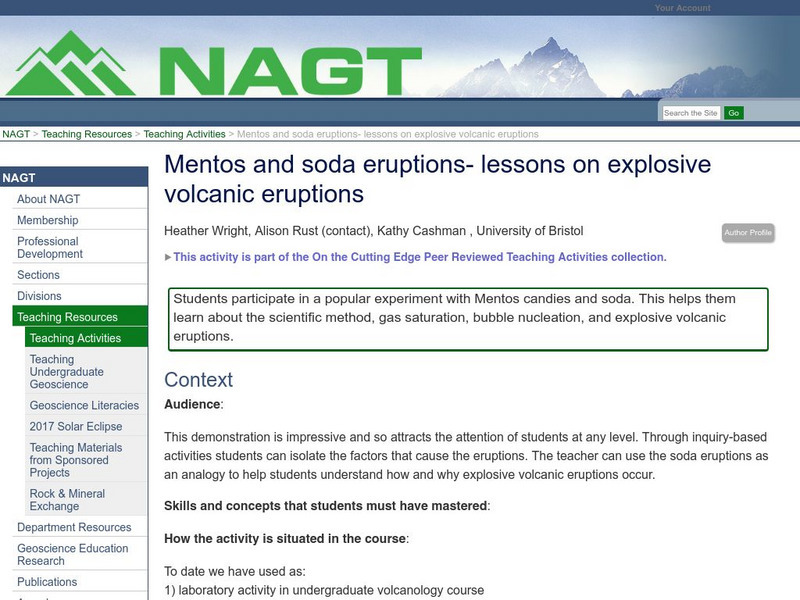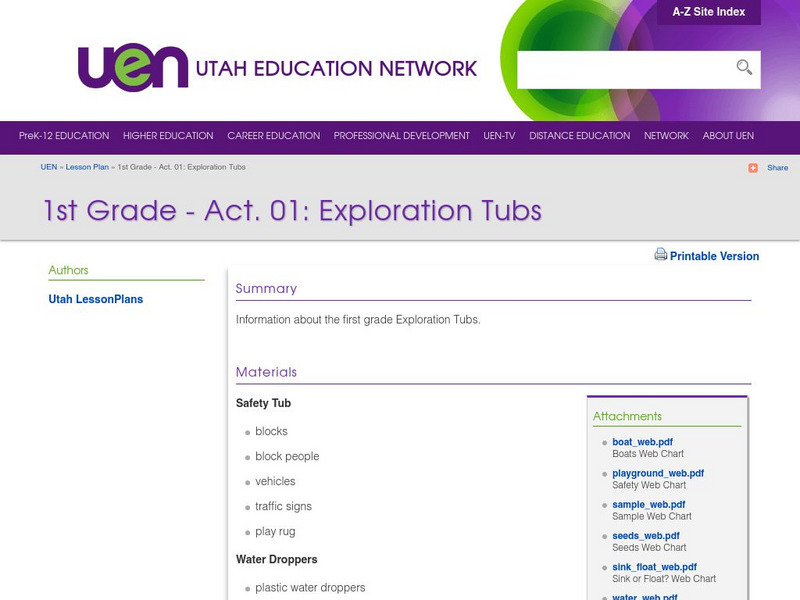Science Education Resource Center at Carleton College
Serc: Making Observations and Drawings
This lesson will help learners develop their scientific observation skills and encourages students to make detailed observations. They will draw and describe insect specimens so another classmate can identify it.
Science Education Resource Center at Carleton College
Serc: Introduction to Nature Journaling
In this activity, students will be introduced to nature journaling and discover the importance of detail accuracy in scientific drawings when used to observe and identify objects.
Science Education Resource Center at Carleton College
Serc: Making Your Own Snowflake in a Jar
In this activity, students will learn about supersaturated solutions. They will observe the beginning formation of crystals as the solution cools and by the next day, the students will see the formation of a snowflake made by the crystals.
Science Education Resource Center at Carleton College
Serc: Prairie Life: Observation and Recording of Plant and Animal Life
Students will learn about prairie life as they investigate the plants and animals that live there. They will then share their observations with their classmates.
Science Education Resource Center at Carleton College
Serc: Observing Leaves and Descriptive Writing
In this activity, students will be introduced to different types of leaves by going on a leaf walk. They will bring back a select few to the classroom, draw and write about one of their leaves, and then share with a partner and then the...
Science Education Resource Center at Carleton College
Serc: Molecules, Molecules, Molecules!
In this activity, young scholars will prove the theory that matter is made up of tiny particles called molecules. This experiment will show that these "invisible" molecules are always moving and leaving invisible spaces in between.
Science Education Resource Center at Carleton College
Serc: Investigating Movement of Tops
Students will raise questions about the way tops move by observing, through exploration/inquiry time, what they are made of, how the shape of each top affects its movement and what surface is best for a top to spin longest. As they...
Science Education Resource Center at Carleton College
Serc: Monitoring Pollution in a Freshwater Environment
During this research project, students will choose either the direct method or the indirect method to monitor and measure pollution while manipulating one variable. They will develop a research question to work on and present their...
Science Education Resource Center at Carleton College
Serc: Map and Compass Lab
Science Scope article presents an activity on topography and land masses that helps students learn about scientific inquiry. Students also practice making and interpreting scale drawings and learning about computation, estimation and new...
Science Education Resource Center at Carleton College
Serc: Light at the Bottom of the Deep, Dark Ocean?
What types of adaptations enable deep-sea fishes to survive and collect food in the darkness of the deep ocean? Interactive, hands-on lesson plan takes students on an exploration of deepwater adaptations by searching for Skittles in a...
Science Education Resource Center at Carleton College
Serc: Project Nopp Drifters
Data collected by the National Oceanographic Partnership Program (NOPP) can be used by teachers to integrate ocean science into their science and math instruction.This site offers educational activities, curriculum materials, and lesson...
Science Education Resource Center at Carleton College
Serc: Plant Pest Control
The goal of this learning experience is to familiarize learners with the concept of scientific inquiry, hypothesis formation, experimental design, data analysis, and interpretation. Learners will explore the website "Which Pest Control...
PBS
Pbs Teachers: Runaway Universe
Use this activity to model how scientists use indirect observations to define problems that are not directly measurable.
Other
Generation Cures: Pathogens [Pdf]
Students will use scientific inquiry to prevent infection within an organism. At the end of the activity, students will understand cell characteristics, effect of microorganisms and how the body protects against harmful microorganism....
McGraw Hill
Glencoe Biology: The Nature of Science: Self Check Quiz
Answer five comprehension check questions about the nature of science in this interactive quiz.
McGraw Hill
Glencoe Biology: Methods of Science: Self Check Quiz
Take this self-checking, five question practice quiz over various methods of science.
University of California
University of California Museum of Paleontology: Fossil Evidence
Understanding Evolution provides evidence for evolution using fossils. There are also links to lesson plans.
National Association of Geoscience Teachers
Serc: Modeling the Effects of Dam Removal on the Elwha River
Students are introduced to river systems and how they evolve and interact with the Earth's surface over time. They learn about the social and scientific issues surrounding the removal of the Glines Canyon Dam on the Elwha River and...
National Association of Geoscience Teachers
Serc: Modeling Sea Level: Lateral and Vertical Facies Changes
What do sequences of sedimentary rocks tell us about how sea level has changed? Students will use a tube and bead (or ball) model to visualize and predict how changes in sea level can control the lateral and vertical facies distribution...
National Association of Geoscience Teachers
Serc: Mentos and Soda Eruptions: Lessons on Explosive Volcanic Eruptions
Students will learn about volcanic eruptions, the scientific method, gas saturation, and bubble nucleation by participating in a popular experiment with Mentos candies and soda.
Museum of Science
Museum of Science and Industry: Online Science: Candy and Chromatography
Follow these illustrated, step-by-step instructions to use chromatography as a tool in identifying a mystery candy.
Read Works
Read Works: Developing Possible Solutions
[Free Registration/Login Required] An informational text about solving problems. A question sheet is available to help students build skills in reading comprehension.
Utah Education Network
Uen: 1st Grade Act. 01: Exploration Tubs
In this lesson, students will investigate different categories related to safety, organisms, sink or float, boats, seeds, and water droppers. Students will use exploration tubs to make observations.
Scholastic
Scholastic: Study Jams! Science: Scientific Inquiry: Outcomes and Predictions
A video and a short multiple-choice quiz on identifying possible outcomes and making predictions.


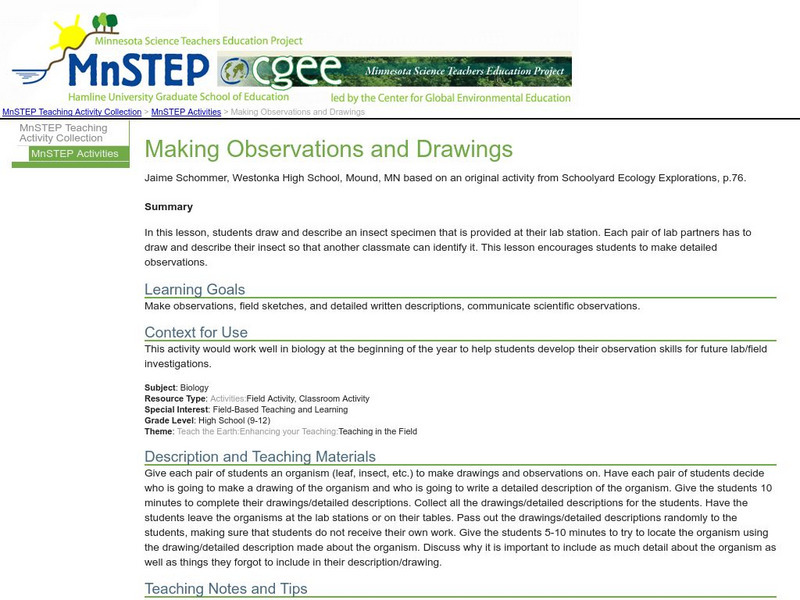
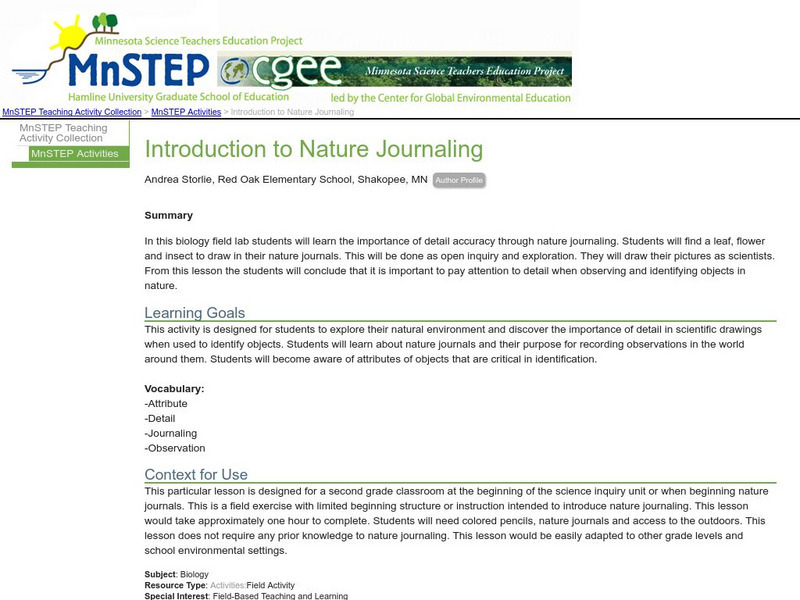
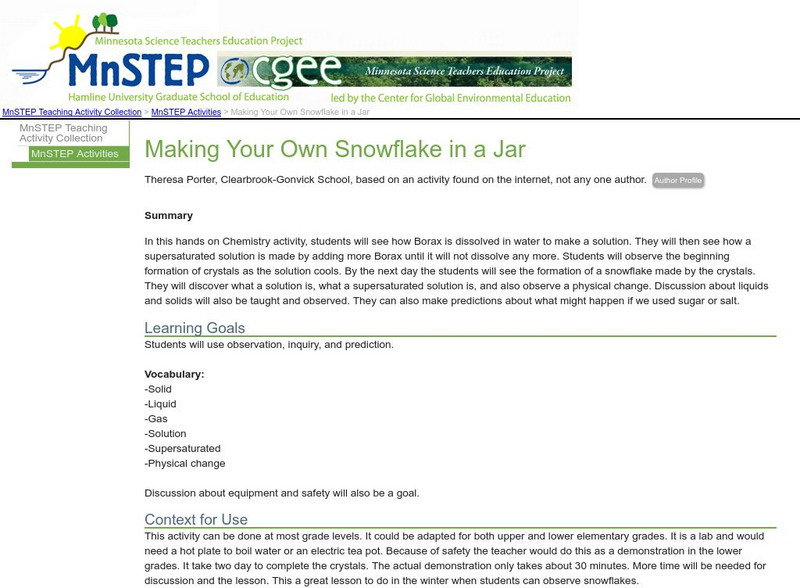
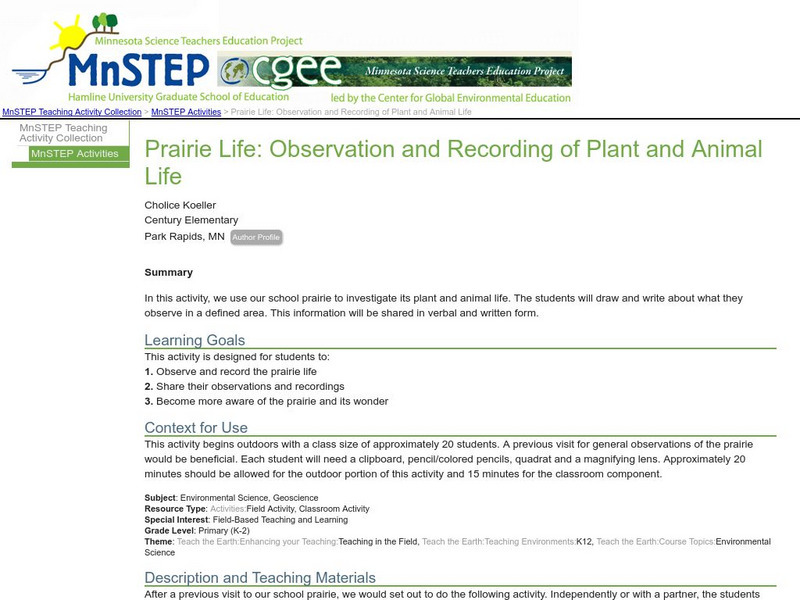



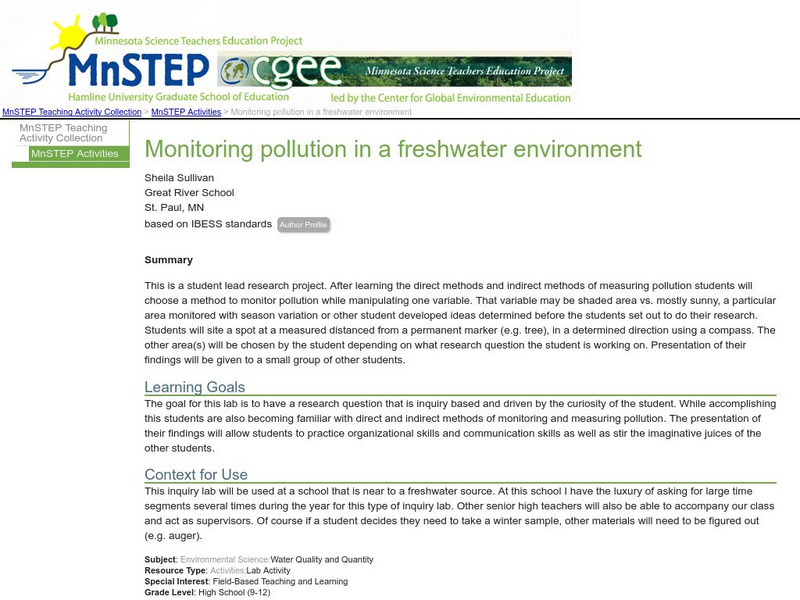

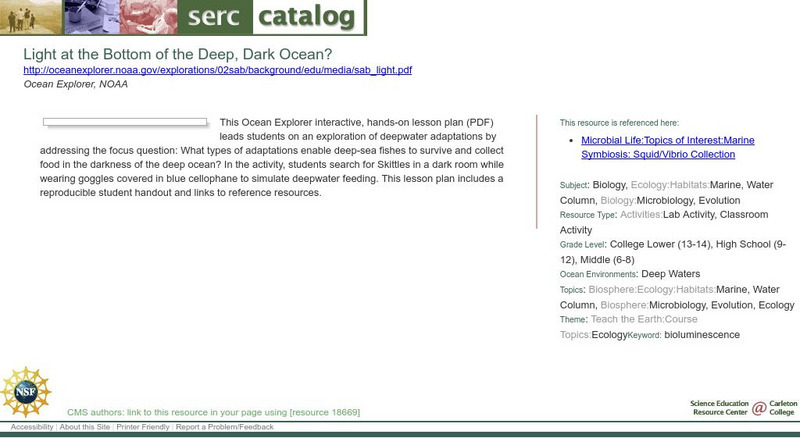



![Generation Cures: Pathogens [Pdf] Lesson Plan Generation Cures: Pathogens [Pdf] Lesson Plan](https://d15y2dacu3jp90.cloudfront.net/images/attachment_defaults/resource/large/FPO-knovation.png)





